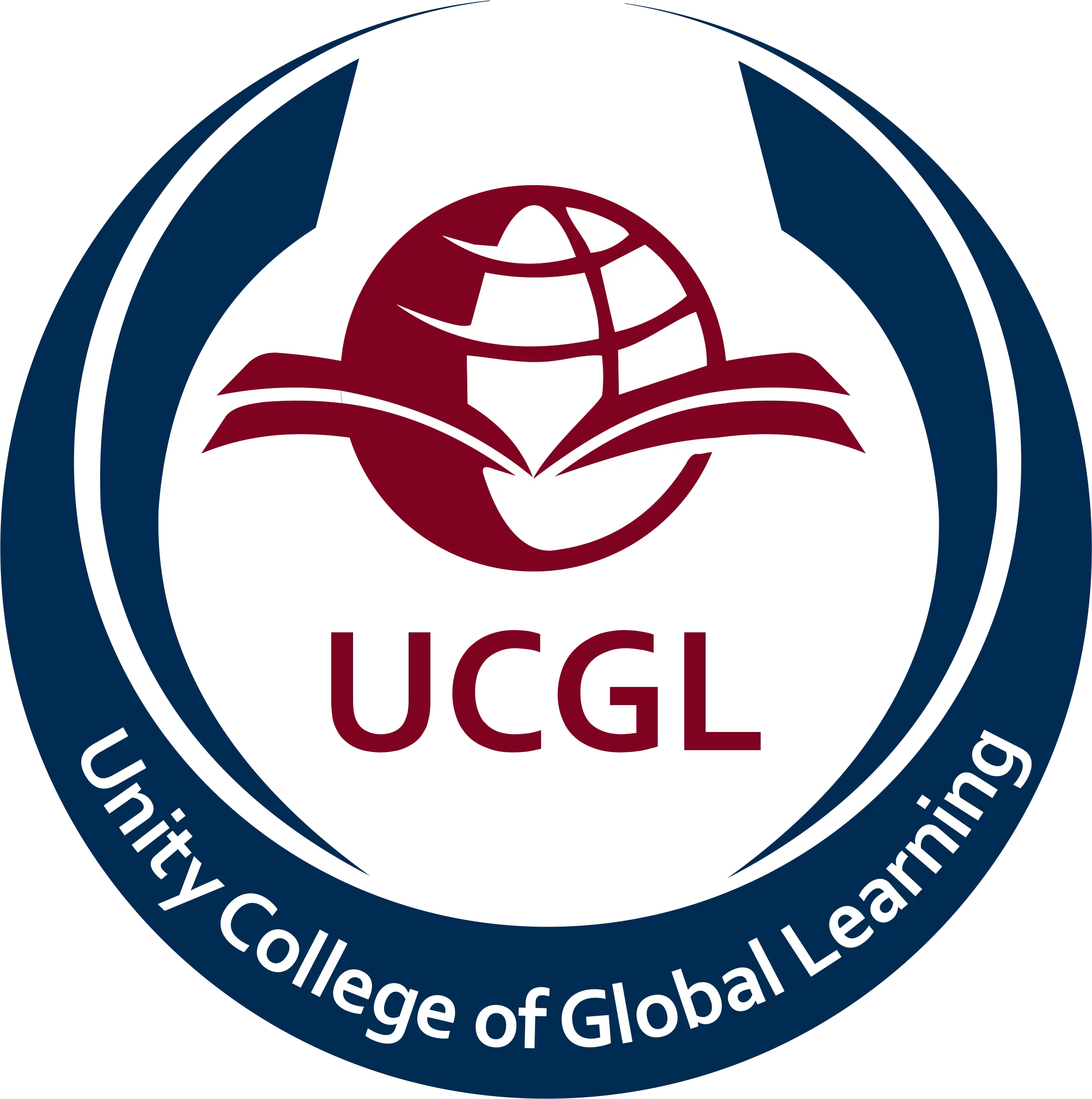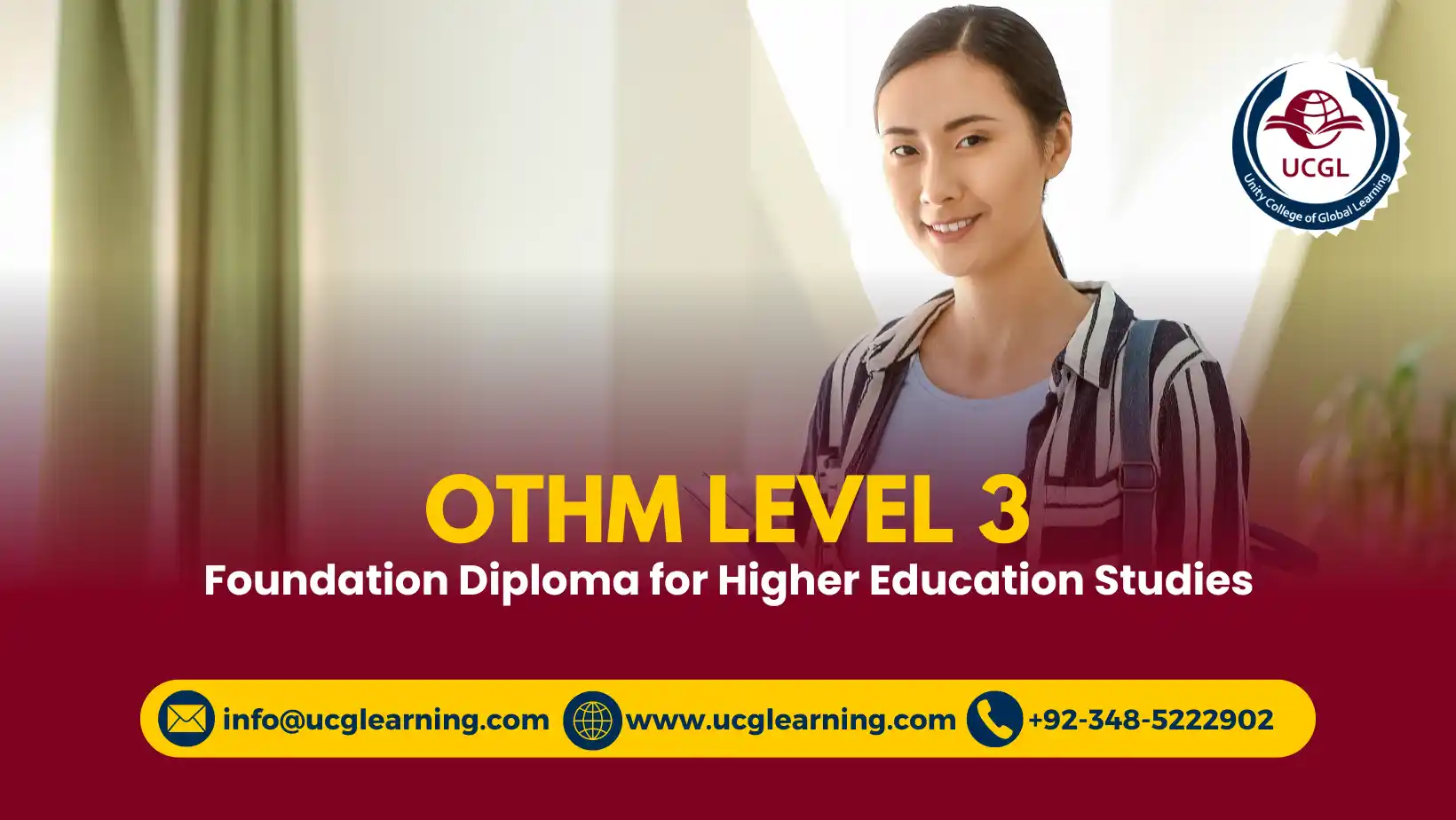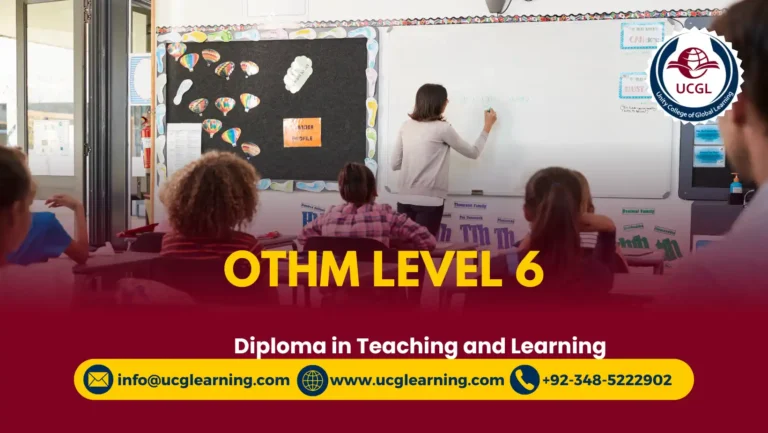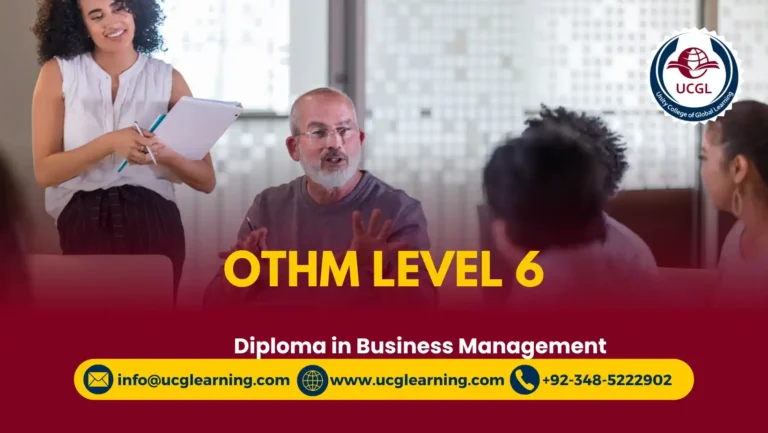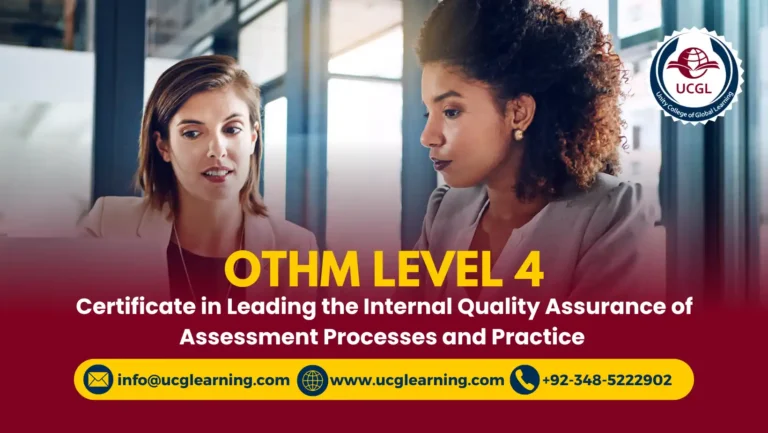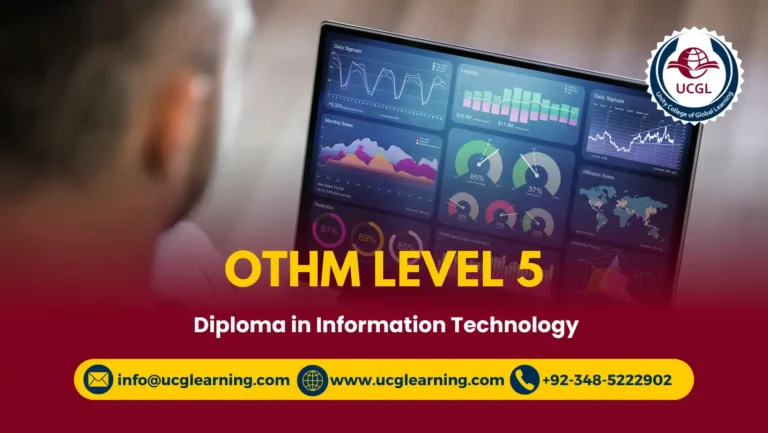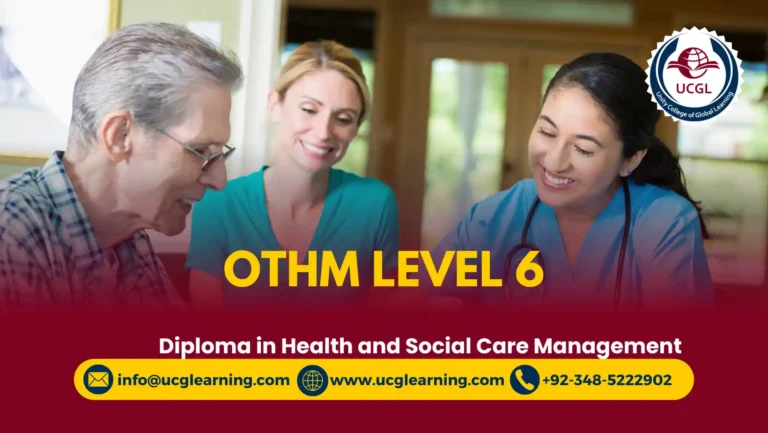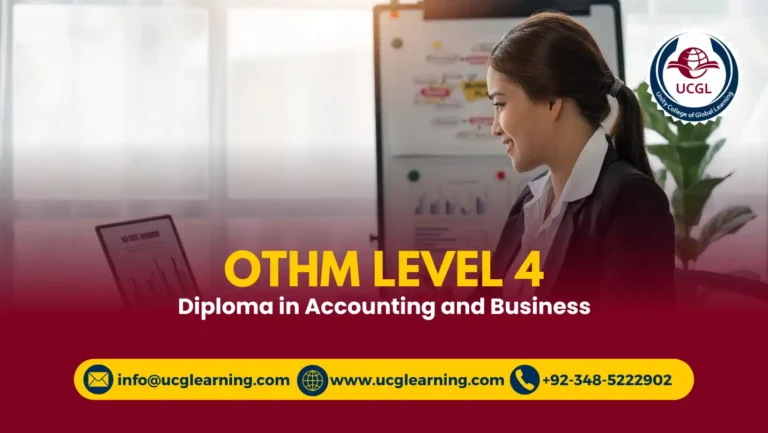OTHM Level 3 Foundation Diploma for Higher Education Studies
This diploma is designed to equip students with the essential skills and knowledge needed to succeed in higher education. It covers a range of subjects, focusing on academic writing, research skills, critical thinking, and effective communication. The curriculum is structured to bridge the gap between secondary education and university-level studies, ensuring students are well-prepared for academic challenges.
Course Introduction
The Level 3 Foundation Diploma for Higher Education Studies serves as a crucial stepping stone for individuals aiming to pursue higher education but lacking traditional qualifications. This diploma provides a comprehensive introduction to academic study skills and subject knowledge, preparing students for university-level courses.
Course Benefits
- Preparation for Higher Education: Helps students develop academic skills necessary for university-level study.
- Flexibility: Offers a flexible learning approach, allowing students to study part-time or alongside work commitments.
- Progression Opportunities: Provides a pathway to further education and potentially accelerates entry into degree programs.
- Enhanced Career Prospects: Equips students with transferable skills valued by employers, such as critical thinking and research abilities.
Course Study Units
- Academic English and Study Skills (20 credits)
- Foundation Mathematics (20 credits)
- Foundation Computing (20 credits)
- Society and Culture (20 credits)
- Introduction to Business (20 credits)
- Foundation Accounting and Economics (20 credits)
Learning Outcomes
- Academic English and Study Skills (20 credits)
- Develop proficiency in academic English language skills, including reading, writing, listening, and speaking.
- Apply critical thinking and analytical skills to academic texts and assignments.
- Demonstrate competence in academic research techniques, including locating and evaluating sources.
- Produce well-structured and coherent academic essays, reports, and presentations.
- Foundation Mathematics (20 credits)
- Understand and apply fundamental mathematical concepts and techniques relevant to business and social sciences.
- Solve mathematical problems using algebra, calculus, statistics, and other mathematical methods.
- Analyze and interpret quantitative data to support decision-making and problem-solving.
- Apply mathematical reasoning and logic to solve real-world problems in various contexts.
- Foundation Computing (20 credits)
- Understand basic concepts and principles of computing and information technology.
- Use software applications effectively for word processing, spreadsheets, databases, and presentations.
- Demonstrate proficiency in using computing tools and techniques for data analysis and problem-solving.
- Apply knowledge of computing to support business operations and academic research.
- Society and Culture (20 credits)
- Understand the foundations and dynamics of societies and cultures from a global perspective.
- Analyze social structures, institutions, and cultural practices across different societies.
- Evaluate the impact of cultural diversity, globalization, and social change on contemporary societies.
- Apply sociological and cultural theories to analyze and interpret societal issues and phenomena.
- Introduction to Business (20 credits)
- Understand the fundamental principles and concepts of business operations and management.
- Analyze the role of business organizations in economic systems and markets.
- Evaluate key functions of business, including marketing, finance, operations, and human resources.
- Apply business theories and principles to analyze business environments and decision-making processes.
- Foundation Accounting and Economics (20 credits)
- Understand basic principles and concepts of accounting and economics.
- Analyze financial statements and reports to assess the financial performance of organizations.
- Evaluate economic theories and principles related to supply, demand, markets, and pricing.
- Apply accounting and economic principles to interpret business transactions and economic trends.
These learning outcomes aim to equip students with foundational knowledge, skills, and competencies necessary for academic success and understanding in the areas of English language and study skills, mathematics, computing, society and culture, business, and accounting/economics.
Who is This Course For?
This diploma is ideal for:
- School Leavers: Those who have completed secondary education and aspire to enter higher education.
- Career Changers: Individuals seeking to transition into a new field and require foundational academic skills.
- Mature Students: Adults returning to education after a break, aiming to build confidence and academic capabilities.
Future Progression
Successful completion of the Level 3 Foundation Diploma for Higher Education Studies opens doors to various progression routes:
- Entry into University: Many universities recognize this diploma as equivalent to traditional qualifications for admission into undergraduate programs.
- Advanced Studies: Enables progression to higher-level diplomas or directly into the second year of certain degree programs.
- Career Development: Enhances employability by providing a solid academic foundation and transferable skills.
Level 3 Foundation Diploma for Higher Education Studies offers a valuable pathway for individuals looking to prepare themselves academically for higher education. It equips students with essential skills, fosters critical thinking, and facilitates a seamless transition into university life or advanced study programs. Whether you’re a recent school leaver or considering a career change, this diploma can significantly enhance your educational journey and career prospects.
